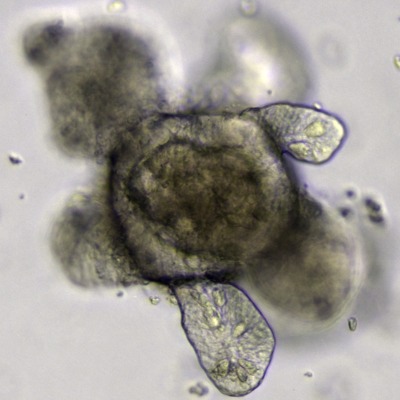
>Hyperthemic Intraperitoneal Chemotherapy (HIPEC), a treatment for appendix and colon cancer that involves heating chemotherapy and delivering it to the abdominal cavities, can be paired with surgery to greatly increase life expectancy for patients. Heated chemotherapy is typically used to treat cancers that have spread to the lining of the abdominal cavities. The heated chemotherapy is able to deeply penetrate the tissues and kill more cancer cells than it would if it were not heated. Researchers at the Wake Forest Organoid Research Center have created personalized organoid tumor models that can help doctors determine the optimal method for HIPEC for appendix and colon cancers. Organoids are grown from cells in a lab, and are tiny, three-dimensional structures that have some structures and functions of the actual organ. The organoid tumor models help doctors and researchers test and develop personalized treatments before they are used in the actual patients.
The organoids for this study were created with samples from 15 appendix and 8 colon cancer patients. Each of the organoids was infused with chemotherapy agents that were heated to either 37°C or 42°C. The concentration, temperature, and type of chemotherapy can be personalized to each patient on the organoid before the actual treatment. Researchers found that each tumor reacted differently to different amounts of heat, ranging from a drastic response to no response at all. This means that the HIPEC protocol could be tailored for each patient.
Overall, the researchers believe that the organoid tumors models are able to accurately predict what happens within a patient’s body and could be used to help doctors make informed decisions on treatment options for patients.
